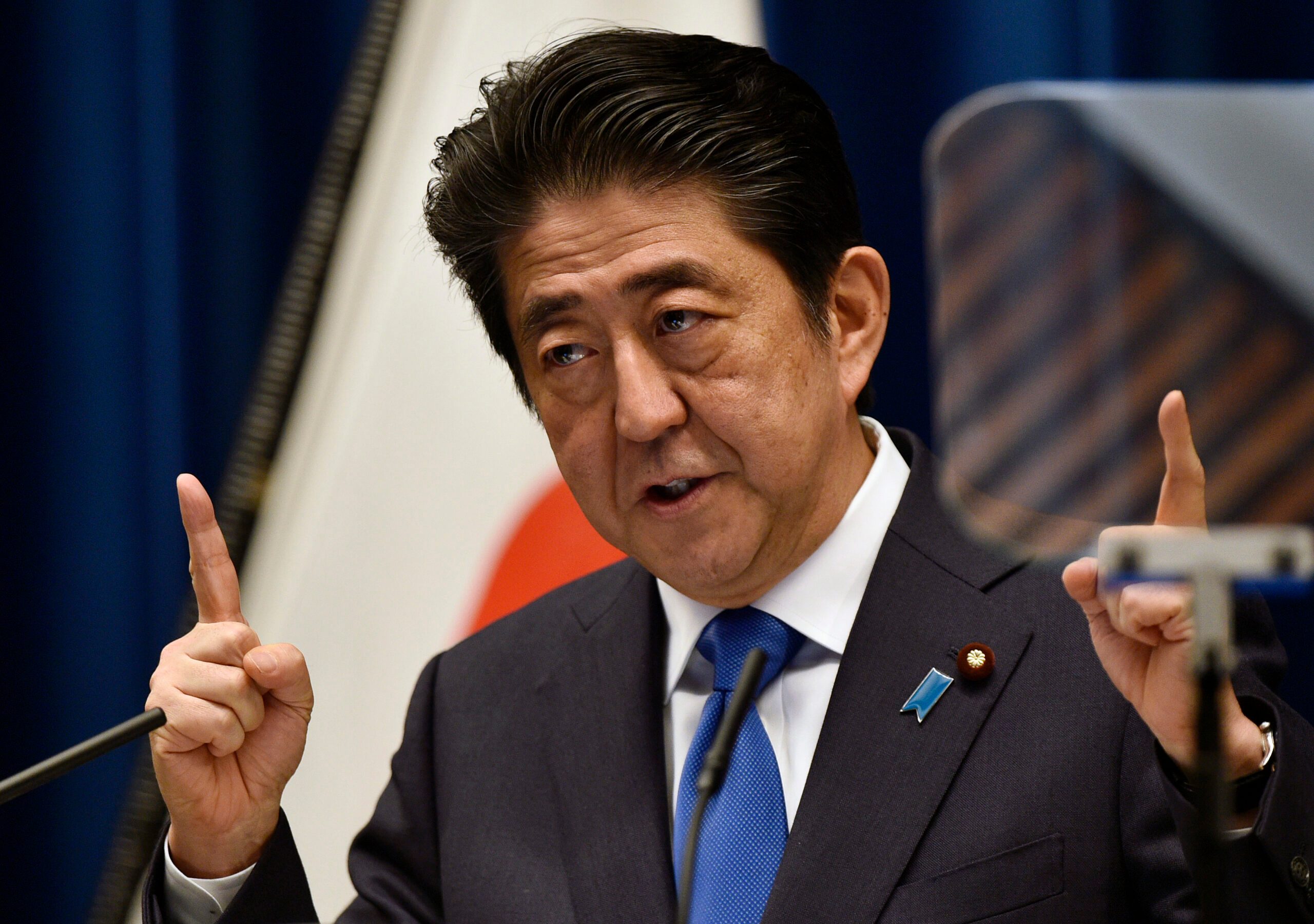SUMMARY
This is AI generated summarization, which may have errors. For context, always refer to the full article.

TOKYO, Japan – Japan’s prime minister on Wednesday, June 1, said he would delay a sales tax hike that threatened to derail the fragile economy, but analysts said it highlighted the failure of his years-long efforts to spark growth.
The decision by Shinzo Abe also drew a warning from credit rating agency Fitch, which said it would “undermine the credibility” of Japan’s commitment to paying down one of the world’s biggest national debts.
Abe had repeatedly said he would follow through on the levy hike, planned for 2017, after it was already delayed once.
But on Wednesday he said raising the tariff to 10% from 8% would be pushed back by more than two years to late 2019, when he is likely no longer in office.
That means the tough job of raising taxes will be pushed onto his successor.
Abe insisted that delaying the tax hike would give Tokyo breathing room to take his faltering Abenomics growth plan “one step further.”
“We will do our utmost to create an environment conducive to raising the tax from October 2019,” he said.
The Japanese leader – who swept to power in late 2012 on a pledge to kick-start growth with his Abenomics policy blitz – is expected to announce a fresh spending package within several months.
The top-selling Yomiuri newspaper earlier said the stimulus could reach 10 trillion yen ($90 billion).
Japan’s economy remains weak and there were widespread fears that another sales tax hike would hammer the world’s number 3 economy by taking a bite out of consumer spending.
“It’s hard to say that ‘Abenomics’ has been successful if (Abe) has to postpone a tax hike,” said Masamichi Adachi, senior economist at JPMorgan in Tokyo.
Japan’s last sales tax rise in April 2014 was blamed for pushing Japan into a brief recession.
But critics say it is crucial to shrink a debt mountain that is more than twice the size of the economy, as social welfare costs balloon in the ageing nation.
‘Clear risks’
Much of Japan’s debt is held domestically at low interest rates which have allowed the country to avoid a Greek-style cash crunch.
But a loss of confidence in Tokyo’s ability to pay its debts could send interest rates soaring and increase the risk of a bankruptcy.
Ratings agencies have previously cut Japan’s credit standing over its debt.
Fitch on Wednesday warned of a possible move, but said it would await more details on Tokyo’s fiscal plans “before drawing conclusions for Japan’s ratings.”
By contrast, Standard & Poor’s said its would not change its rating, noting that there were “clear risks” to Japan’s economy if the tax was raised next year, citing weakness overseas and a strong yen.
Last week at a G7 summit, Abe hinted at the delay as he warned over a global economic “crisis.”
Abe compared it to the situation before the collapse of Lehman Brothers in 2008, which set off the global financial crisis.
That claim was rejected by some of his rich nation counterparts, and many saw it as a bid to justify delaying the tax hike.
Previously, Abe said his government would only push back the long-planned tax hike in the event of “a grave situation” – on the scale of the collapse of Lehman Brothers or a major earthquake.
Abe’s blueprint for igniting the once-powerhouse economy consisted of a mix of massive central bank monetary easing, government spending, and efforts to slash red tape.
The plan appeared to work at first as it sharply weakened the yen, a plus for Japan’s exporters, and which set off a stock market rally.
But that initial optimism has given way to growing doubts as the economy struggles to gain traction over 3 years later.
Japan holds upper house parliamentary elections in July and Abe’s time in office ends in September 2018 unless his party approves an exceptional measure to extend his leadership. – Kyoko Hasegawa, AFP / Rappler.com
Add a comment
How does this make you feel?
There are no comments yet. Add your comment to start the conversation.